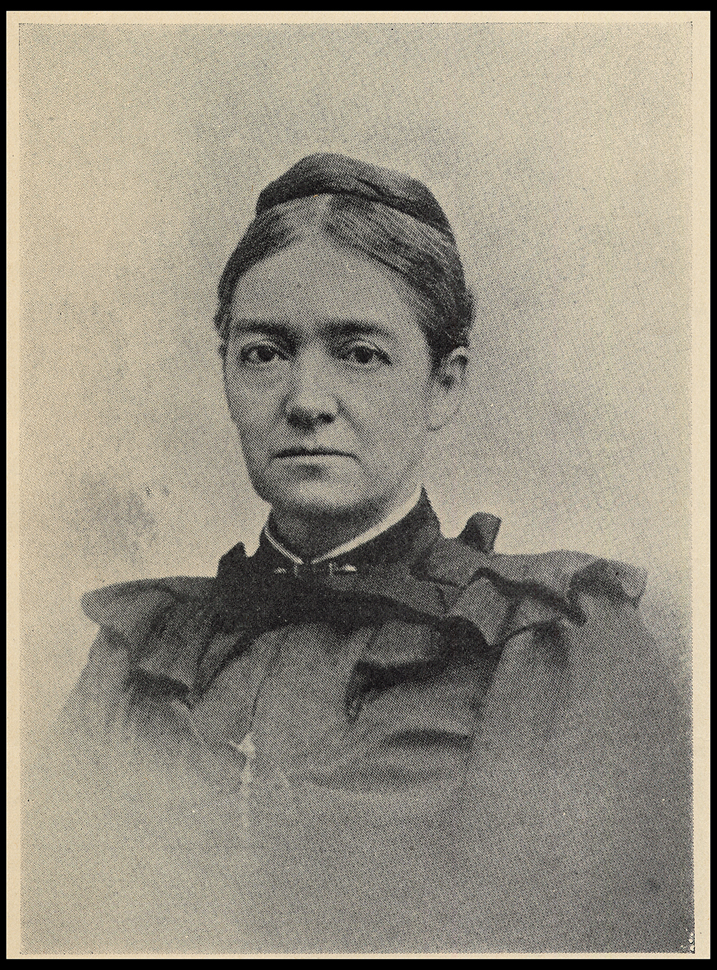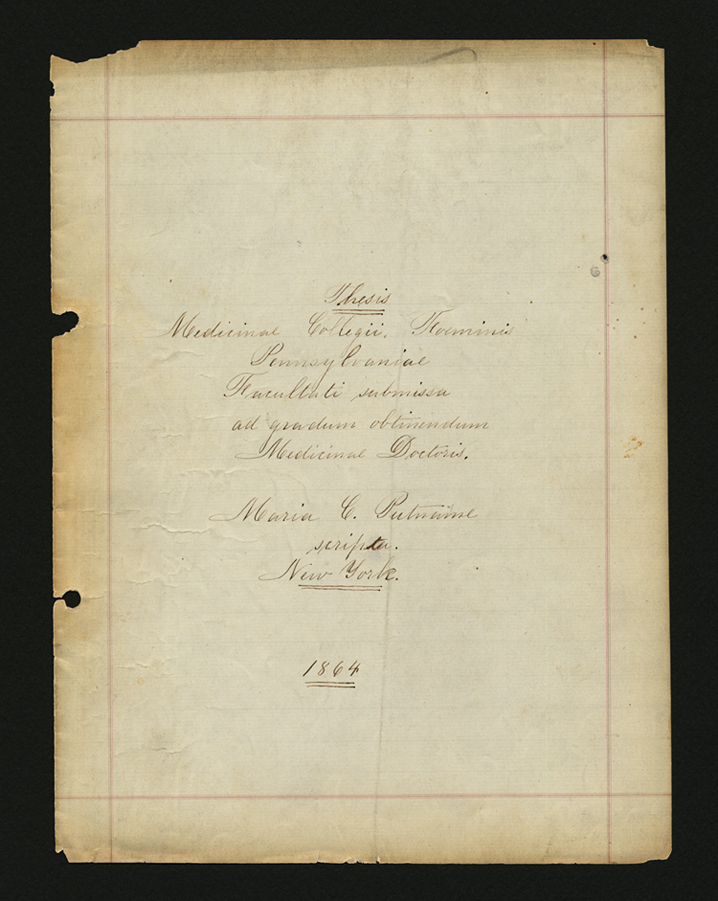Mary Putnam Jacobi: Still famous after 150 years
By Chrissie Perella

Mary Putnam Jacobi, undated
The New York Times ran a recent article entitled "Honoring Female Pioneers in Science"1 - and one of Woman's Medical College of Pennsylvania's graduates was recognized. Although this woman graduated nearly 150 years ago, it seems that Dr. Mary Putnam Jacobi is still highly regarded today for her work in the field of medicine.
Dr. Mary Putnam Jacobi was born in 1842 in London, England, to American parents. She and her family returned to the United States in 1848 and she grew up in New York. She studied under Dr. Elizabeth Blackwell, the first woman to receive a medical degree (from Geneva Medical College in 1849), attended lectures at New York Medical College, and studied anatomy. In 1861, Dr. Jacobi became the first woman to earn a degree from the New York College of Pharmacy.

The matriculation book for Woman's Med, October 14, 1863. Jacobi is the fifth name down, under her maiden name Putnam.

Thesis, 1864, "Theorae ad lienis officium"
She entered the Female (later Woman's) Medical College of Pennsylvania in October of 1863, and after some conflict with Dean Edwin Fussell over the fulfillment of graduation requirements, Dr. Jacobi graduated in spring of 1864. Her thesis was written entirely in Latin - a great feat even back in the mid-nineteenth century, and certainly uncommon. It is titled "Theory on the Function of the Spleen" (or Theorae ad lienis officium) and can be viewed in our digital collection here.
After graduating from the Female Medical College, Dr. Jacobi worked for a brief time at the New England Hospital for Women and Children, and then set off for Paris, where she finally gained entrance to the École de Médecine of the University of Paris in order to further her studies. She was the first female student accepted into the school, and, in 1871, became the second woman to graduate. She then returned to the United States and opened her own medical practice in New York.

An 1883 newspaper clipping, praising women physicians
In 1872, Dr. Jacobi became the first woman to gain membership into the Academy of Medicine and also organized the Association for the Advancement of the Medical Education of Women, of which she was president from 1874 to 1903. In 1876, Harvard University awarded her the Boylston prize for her essay "The Question of Rest for Women during Menstruation." Her essay argued against the belief that women were limited physically during menstruation, and provided scientific evidence to support her statements, including data on pulse rate and other statistics concerning the the stability of a woman's health, strength, and agility throughout her monthly cycle. In 1886, she opened a children's ward in the New York Infirmary. Her final essay, "Description of the Early Symptoms of the Meningeal Tumor Compressing the Cerebellum. From Which the Writer Died. Written by Herself," was published in 1905, shortly before she died in June of 1906.
The Legacy Center holds not only historic photographs of Dr. Jacobi, but also her thesis, news clippings, biographical information, and publications by and about her. You can access our digital materials about Dr. Jacobi here.
1The New York Times article, "Honoring Female Pioneers in Science: ‘Extraordinary Women in Science and Medicine’ Offers Up Little-Known Details," can be viewed here.